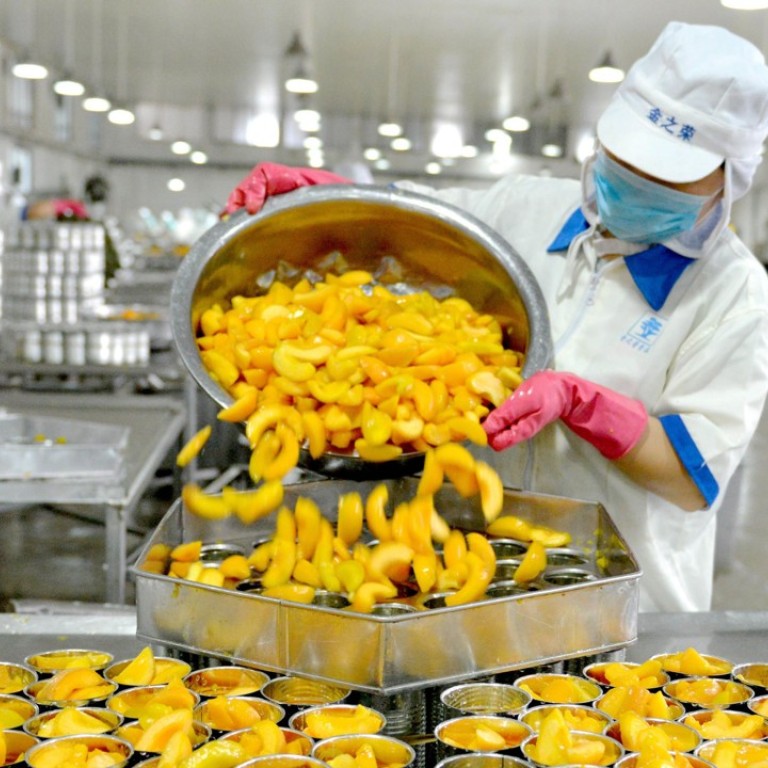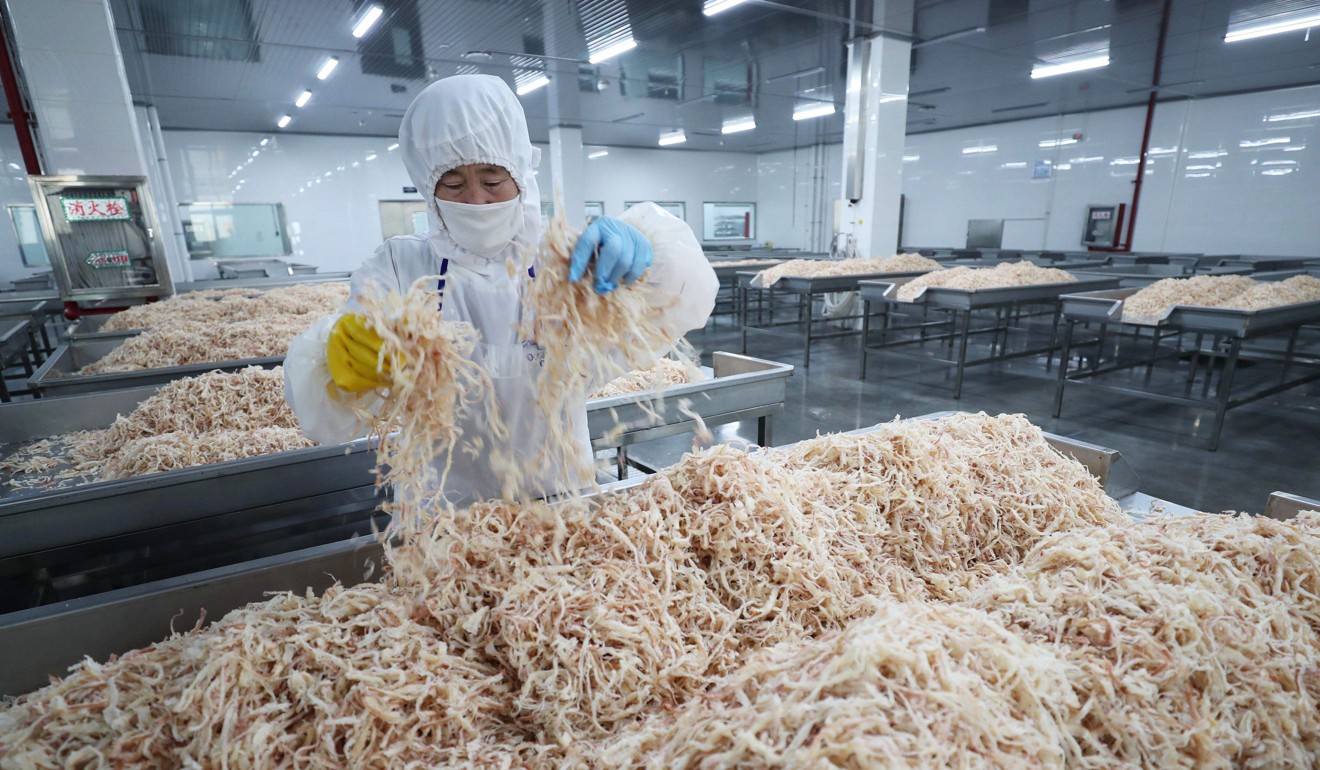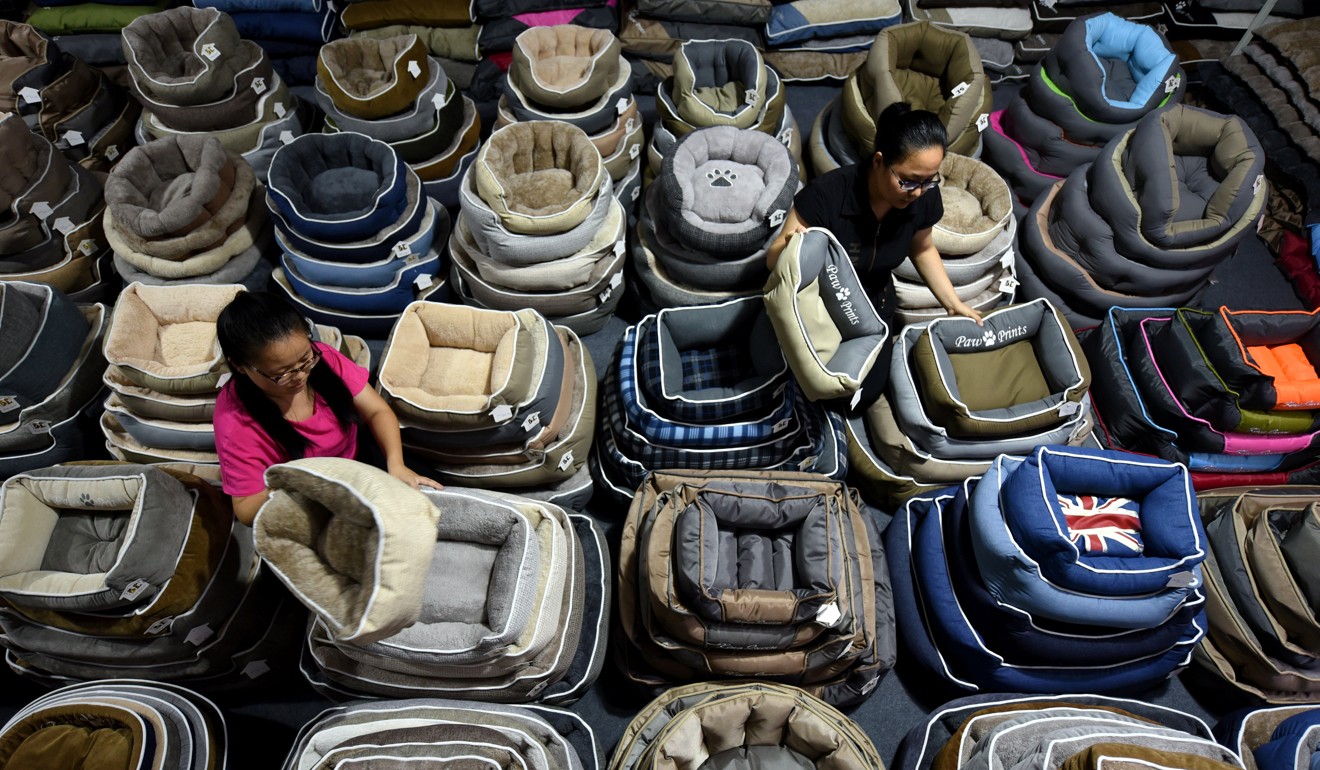
From marmalade to strawberry jam, the US is targeting Chinese exports of little substance
Avoiding big-ticket exports such as mobile phones or video games, more than half of the Trump administration’s latest targets for tariffs are Chinese products that accounted for less than US$1 million in exports last year
Orange marmalade, the favourite of Paddington Bear and a staple on many breakfast tables, has become an unusual victim in the trade war between the US and China, the two largest economies on Earth.
It sits near the bottom of a list of 5,000 types of Chinese imports that US President Donald Trump’s administration plans to subject to 10 per cent in duties later this year. The administration previously designated more than 1,000 Chinese imports for 25 per cent levies earlier in the year.
China is one of the biggest global exporters of fruits, and also the world’s factory – responsible for making products of all sizes and descriptions for consumers around the globe – but the nation’s orchards are hardly giants when it comes to preserves.
Chinese orange marmalade products to America fell by half to US$12,330 last year, down from US$25,070. Its exports amounted to less than 0.3 per cent of the US$4.2 million of imported spread of that particular flavour in 2017, according to the US International Trade Commission’s data.
France was the origin of a third of all imported orange marmalade in the US last year, nearly US$1.4 million. Canada, Poland and the United Kingdom combined for another US$1.8 million.
Still, Trump’s planned tariffs would extend to other flavours of imported breakfast spreads from China – pineapple, cherry, currant and strawberry jams – none of which features China anywhere near the top 15 sources to the US.

All in, China’s total 2017 exports of fruit jams and jellies to America amounted to a total of US$4.1 million, driven primarily by imports of apricot jam and fruit jellies that were not made from berries or currants, the data showed.
In seeking to put maximum pressure on the government in Beijing, the Trump administration appears to have been arbitrary and tactical in choosing a large swathe of Chinese products for additional tariffs, many that on their own would have little impact on the US economy.
The White House did not respond to a request for comment for this story.
Nearly 32 per cent of the 7,000 categories of Chinese products designated for new tariffs accounted for less than US$100,000 each in import value, while more than half of those accounted for less than US$1 million each, based on a South China Morning Post analysis of US trade and customs data.
More than 800 of the targeted product categories had no imports at all from China last year. The US Senate quietly passed a bill last week that would temporarily ease duties on some items covered by the tariffs proposed by the Trump administration, such as flavoured coconut water and pimientos, but the president could opt to veto that bill when it reaches the White House. Marmalade and fruit jams were not among the items facing a potential reprieve as part of that legislation.
Mobile phones – mostly Apple’s iPhones, assembled by Taiwan’s Foxconn Technologies at its million-worker campuses in China – accounted for US$44.5 billion in China’s 2017 exports to the US.
The tariffs are a “negotiating tactic” by the Trump administration seeking to balance what it perceives as an unfair trade environment, said AxiTrader’s chief market strategist Greg McKenna in Sydney.
“This is an administration that believes in American exceptionalism – that on a level playing field of tariffs and access US companies can outproduce, outsell, outcompete, and ultimately outlast the competition from other nations,” McKenna said. “At its heart is a desire for fairness which is exactly what the president has been saying since day one, it fits his narrative that the US is being unfairly treated and being taken advantage of. It’s as simple and as difficult as that.”

Trump, anxious to close the US$350 billion trade gap between the US and China, has slapped tariffs on US$250 billion of Chinese imports and has threatened levies on up to US$500 billion worth of products, leading China to retaliate by imposing duties on American produce.
The tariffs – and retaliatory measures by the Chinese government – have already cut into the bottom queues of some US businesses.
After trade war failure, China's VP is now reforming state enterprises
Of all the Chinese products that Trump has accused of “stealing American jobs” or of being engaged in “unfair trade” or even “theft of intellectual property rights,” marmalade must count as one of the least threatening.
Almost US$131 million of jams, fruit jellies and marmalade were imported into the US in 2017, according to data from the US International Trade Commission. By comparison, America itself sent US$60.4 million of domestically produced jams, fruit jellies and marmalade overseas last year, according to government data.

Overall, Americans consumed US$993.9 million in jams and fruit preserves last year, according to Euromonitor International. Worldwide, the industry accounted for US$7.9 billion in sales in 2017, according to the independent market research firm.
Many of the imported spreads already face customs duties in the US ranging from 1.4 per cent to 5.6 per cent, unless they are covered under an existing trade agreement, such as the North American Free Trade Agreement between Canada, the US and Mexico.
But, the trade imbalance is not being driven by China, so Americans are not likely to feel that much pain at their breakfast table.
France was the largest foreign supplier to the US as it accounted for 32 per cent of all imports of the fruit spreads, or US$42.3 million. By comparison, the French only imported US$40,000 of jams, jellies and marmalade from America last year.
Canada was the next largest exporter, sending US$27.8 million of the targeted jams, jellies and marmalade to the US last year. However, Canada itself imported more than that – about US$44 million – from its southern neighbour last year.
The industry in the US includes the likes of J.M. Smucker Company; the National Grape Cooperative Association, the owner of the Welch’s brand; Kraft Heinz; B&G Foods, the maker of Polaner All Fruit; Andros NA of France, the producer of the Bonne Maman brand; and Switzerland’s Hero AG.
The sector produces fruit spreads in house, but also uses external production suppliers depending on the company. It is reliant on big and small farmers for the fruit at the heart of its products. The owner of Welch’s, for example, is a cooperative of more than 900 farmers.
Smucker said that it expected the impact of the proposed tariffs to be “very minimal – if anything at all.”
“We do not import materials from China for our jams, jellies, and preserves,” Ray Harcourt, a Smucker spokesman said. “We manufacture our products ourselves and our distribution is North America focused.”
In the 11 targeted categories of fruit spreads, China sent US$4.1 million to the US in 2017, but was only a top five exporter in two of those categories, according to US trade data. Apricot jam and fruit jellies that were not made from berries or currants accounted for US$3.8 million of that total.
In most of the targeted categories of fruit spreads, China exported a minimal amount to the US.
“We don’t feel any pressure. We do everything here locally and in the US,” Alexis Hooper, who heads operations at White Oak Farm and Table.
White Oak, based in Westport, Conn., is a producer of salad dressings, mustards, sauces and fruit preserves, focused on locally sourced, organic ingredients. Its products are found on the shelves at Whole Foods Market, which is owned by Amazon.com.
Hooper said that she did not believe that tariffs on Chinese-made spreads would be an “equaliser” for their business.
“We don’t consider China competition,” she said.
With additional reporting by Daniel Moss

